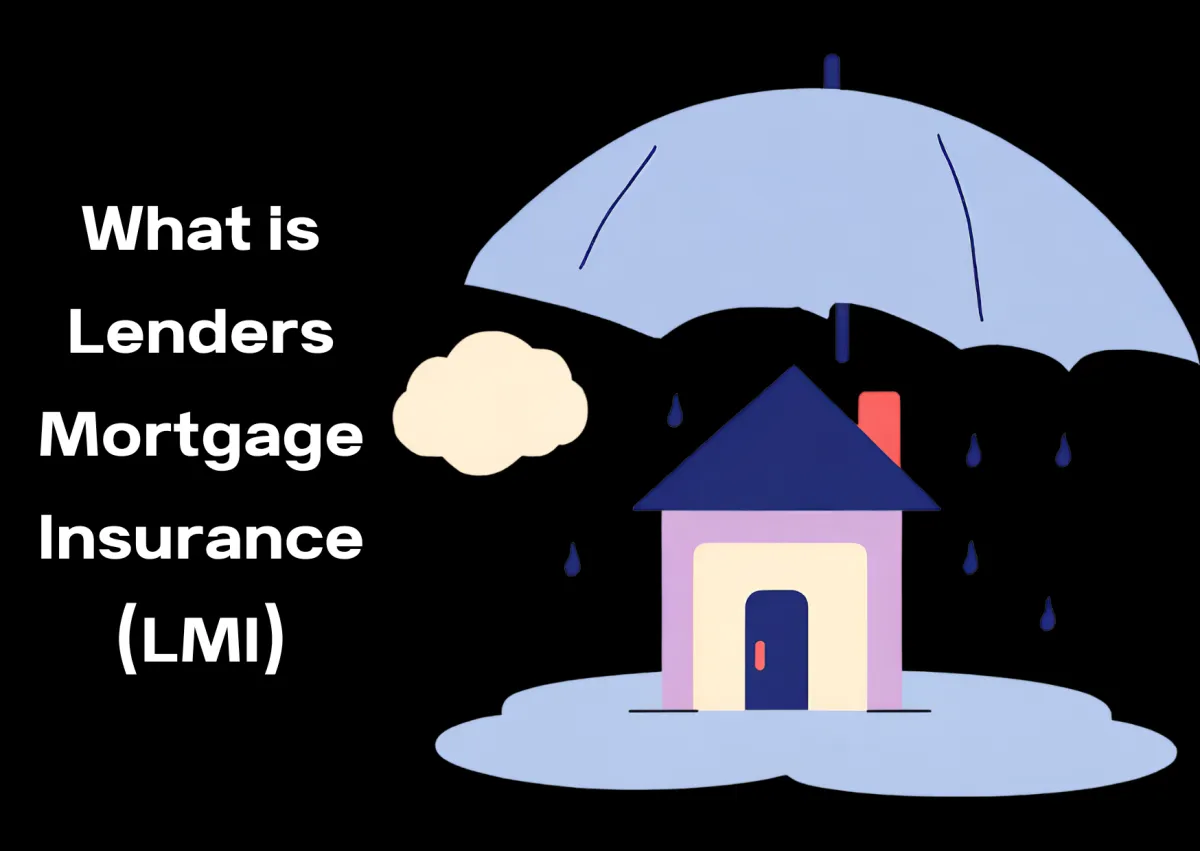read our blog articles

What is Lenders Mortgage Insurance (LMI)?
Understanding that LMI primarily protects lenders is key, but it also brings benefits to borrowers. It opens more opportunities for borrowers who can manage loan repayments to own a home. Plus, it eases the burden of the deposit usually required by lenders, often set at 20% of the property's value, making the journey to homeownership more achievable for many.
What is LMI?
Lenders Mortgage Insurance (LMI) is an insurance policy that lenders buy to protect themselves against the possibility of not recovering the outstanding loan balance if, as the borrower, you encounter difficulty in meeting your loan payments and the property sells for less than what is owed. It's essential to understand that LMI is designed to cover the lender, not you or any guarantor, even though the cost is typically passed on to you by the lender. This means that you, as the borrower, cannot file a claim under the LMI – only the lender holds that privilege.
Note - LMI is not the same and is different to mortgage protection insurance. Mortgage protection insurance is an insurance policy a borrower might separately obtain to safeguard themselves against the risk of being unable to meet their loan payments.
How Does LMI Work?
LMI typically comes into play when a borrower, who is otherwise creditworthy, hasn't saved up a substantial deposit, usually around 20% of the property's value. Because of the smaller deposit, the borrowed amount tends to be higher in comparison to the property's value, resulting in what's known as high Loan-to-Value Ratio (LVR) loans. These loans pose more risk and require more capital for lenders.
Thanks to LMI, lenders can confidently participate in and compete for residential mortgage lending business, especially in high LVR lending scenarios. With LMI, lenders can transfer this risk to the insurance provider. Without this option, many lenders might hesitate due to lack of appetite for risk, expertise, or capacity in this segment.
How Does LMI Help Me?
LMI is like a helpful hand in making your homeownership dreams a reality. Picture this: you're eager to buy a home, you meet most lender requirements, but you're missing that substantial deposit, usually around 20%. That's where LMI comes in to increase your eligibility to obtain mortgage finance. It's like a safety net, reducing the risk for lenders if, for any reason, you find it tough to keep up with your loan repayments. With this reduced risk, lenders are more open to working with you, even if you're starting without the usual 20% deposit. So, in essence, LMI is there to give you a better shot at securing that dream home, even when the deposit seems out of reach.
How is the LMI premium paid?
The lender covers the LMI premium payment to the insurer during the settlement of your home purchase. This one-time upfront payment secures coverage for the lender throughout the life of your loan, which can extend up to 30 years. The specific amount of the LMI premium is determined by the lender, the loan amount, and the size of your deposit. Typically, the lender passes on the cost of this premium to you as a fee. This is because purchasing LMI is part of the lender's expenses in providing finance to you. You have the option to pay this fee to the lender at settlement, or you may have the opportunity to include it as part of your loan. If you choose to capitalise the LMI cost, the cost of LMI will be spread out and added to your loan repayments over the term of your loan.
How to reduce or avoid the cost of LMI
To reduce or avoid the cost of LMI, you may need to consider the below strategies:
Save a 20% or more deposit
When securing a home loan, a deposit is essential. The simplest way to avoid LMI is by saving a 20% deposit of the chosen property value. However, this can be challenging, and its important to consider the advantages and disadvantages of extending your saving period versus entering the property market sooner.
Search for lenders who might offer discounts or waive LMI costs
Depending on your profession, you might qualify for LMI waiver on your home loan. Professions such as doctors, dentists, and accountants, often receive special discounts and loan conditions due to their higher income levels. The higher income associated with these professions typically signals stable employment to the lender, translating to lower risk for them. However, it's crucial to keep in mind that while this option exists, the specific professions eligible for discounts and the extent of these discounts can vary between lenders.
Have a family member act as guarantor
Consider a guarantor home loan as an alternative to avoid LMI expenses. In this scenario, a guarantor, typically an immediate family member or close relative, utilises their equity to secure your home loan, covering the 20% deposit required to avoid paying LMI.However, it's crucial to understand that a guarantee is a legally binding commitment. If you encounter difficulties repaying your home loan, the responsibility falls upon the guarantor. Removing a guarantor from your home loan is possible only once the value of the guarantee has been paid off.
Check your eligibility for the First Home Guarantee Scheme
For eligible first home buyers, an alternative avenue is to consider applying for the Federal Government's First Home Guarantee Scheme. This scheme enables eligible homebuyers to apply for a loan with a deposit as low as 5%, with the added benefit of not having to pay for LMI if the lender approves the loan. The Government essentially guarantees the additional amount required to achieve a 20% deposit.
First home buyers with an annual income of up to $125,000 (or $200,000 for a couple) are eligible for this scheme. However, it's important to note that the availability of guarantees under this scheme is limited. You may want to check if guarantees are available for the current year, or if you would need to wait until the following year to apply. Additionally, there are also other schemes available, such as the Family Home Guarantee Scheme and the Regional Home Guarantee Scheme, which you may qualify for.
Understanding LMI is crucial to making informed decisions about your next steps in aquiring a home loan. Whether you're refinancing or purchasing your home, the need to pay LMI depends on your specific circumstances.
We're here to guide you every step of the way. Schedule a free appointment today to explore your home loan options.


